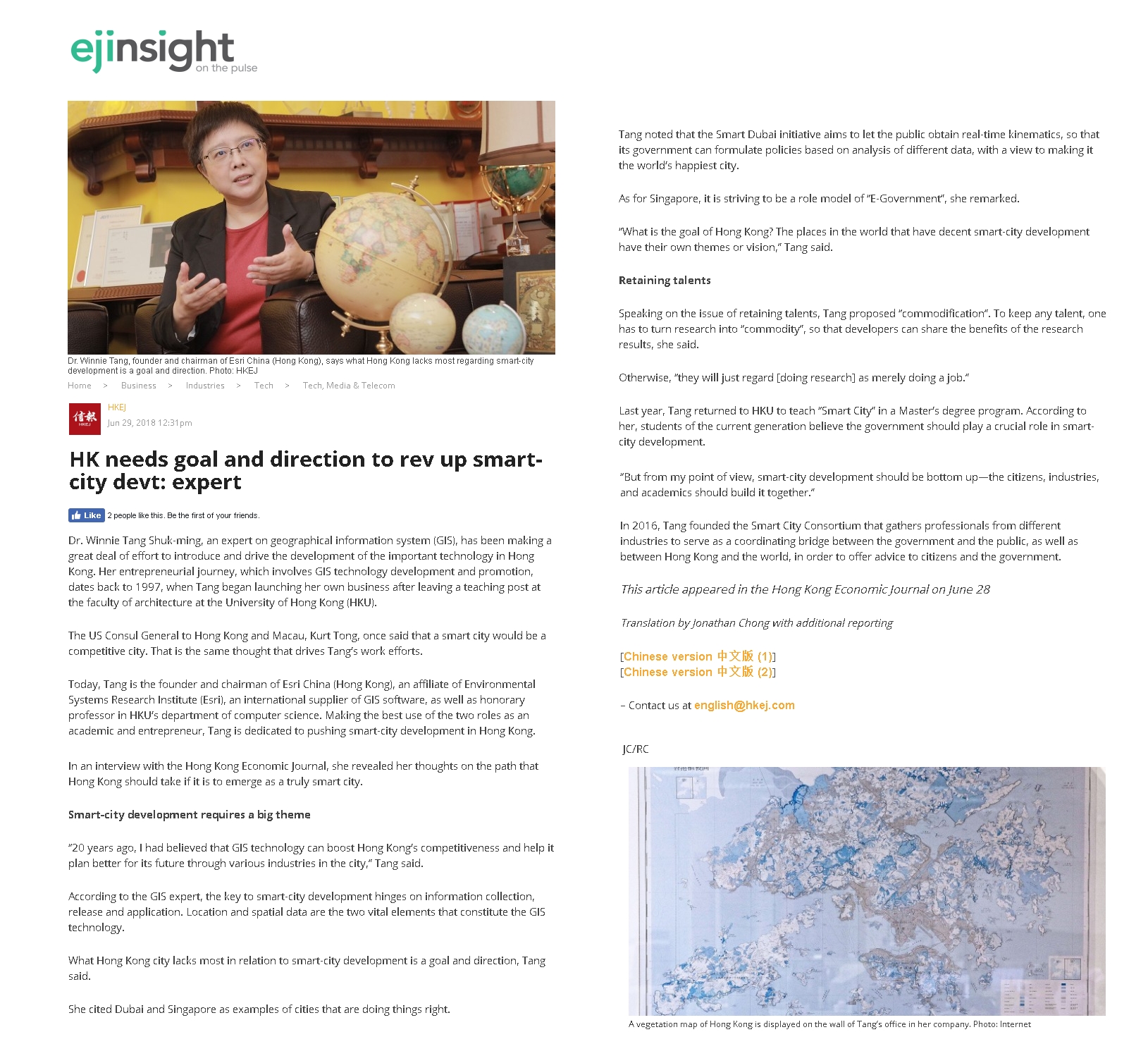網上版請按此

HK needs goal and direction to rev up smart-city devt: expert
Dr. Winnie Tang Shuk-ming, an expert on geographical information system (GIS), has been making a great deal of effort to introduce and drive the development of the important technology in Hong Kong. Her entrepreneurial journey, which involves GIS technology development and promotion, dates back to 1997, when Tang began launching her own business after leaving a teaching post at the faculty of architecture at the University of Hong Kong (HKU).
The US Consul General to Hong Kong and Macau, Kurt Tong, once said that a smart city would be a competitive city. That is the same thought that drives Tang's work efforts.
Today, Tang is the founder and chairman of Esri China (Hong Kong), an affiliate of Environmental Systems Research Institute (Esri), an international supplier of GIS software, as well as honorary professor in HKU's department of computer science. Making the best use of the two roles as an academic and entrepreneur, Tang is dedicated to pushing smart-city development in Hong Kong.
In an interview with the Hong Kong Economic Journal, she revealed her thoughts on the path that Hong Kong should take if it is to emerge as a truly smart city.
Smart-city development requires a big theme
“20 years ago, I had believed that GIS technology can boost Hong Kong's competitiveness and help it plan better for its future through various industries in the city,” Tang said.
According to the GIS expert, the key to smart-city development hinges on information collection, release and application. Location and spatial data are the two vital elements that constitute the GIS technology.
What Hong Kong city lacks most in relation to smart-city development is a goal and direction, Tang said.
She cited Dubai and Singapore as examples of cities that are doing things right.
Tang noted that the Smart Dubai initiative aims to let the public obtain real-time kinematics, so that its government can formulate policies based on analysis of different data, with a view to making it the world's happiest city.
As for Singapore, it is striving to be a role model of “E-Government”, she remarked.
“What is the goal of Hong Kong? The places in the world that have decent smart-city development have their own themes or vision,” Tang said.
Retaining talents
Speaking on the issue of retaining talents, Tang proposed “commodification”. To keep any talent, one has to turn research into “commodity”, so that developers can share the benefits of the research results, she said.
Otherwise, “they will just regard [doing research] as merely doing a job.”
Last year, Tang returned to HKU to teach “Smart City” in a Master's degree program. According to her, students of the current generation believe the government should play a crucial role in smart-city development.
“But from my point of view, smart-city development should be bottom up—the citizens, industries, and academics should build it together.”
In 2016, Tang founded the Smart City Consortium that gathers professionals from different industries to serve as a coordinating bridge between the government and the public, as well as between Hong Kong and the world, in order to offer advice to citizens and the government.